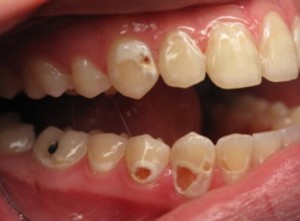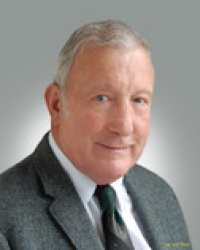 The two most important ORAL HEALTH HABITS, especially for younger people, are to keep healthy teeth and keep the supporting tissues healthy. Many people now keep their teeth until they are 90 years or older.
The two most important ORAL HEALTH HABITS, especially for younger people, are to keep healthy teeth and keep the supporting tissues healthy. Many people now keep their teeth until they are 90 years or older.
Many young people do not think their teeth will be a problem when they get older. Many feel that skipping a night or two of brushing and flossing will cause no harm. But they may be sadly mistaken. They also may feel that eating ice cream or candy just before bedtime is not harming their health and teeth.
Again, they may be making a mistake. As an old veteran, teeth are very, very important for young people. Old age creeps up on them before they realize how important having their original teeth are. There is not enough teaching in schools to emphasize the health implications of having healthy teeth and supporting tissues. Obtaining great oral hygiene habits when young is a great asset for all young people. Many do not realize that if they keep excellent care of their teeth now, it may reduce many ailments and diseases in the future. It may also help them live longer.
Have the younger people discussed dentures with older adults to find out the good, the bad, and the ugly part of having dentures? If they have, they will find that not all is perfect and many older denture wearers wish they had their original teeth back.
Almost one out of every fifteen older people in the U.S., Canada, and England have dentures. How does that affect their health? Much depends on their diet, and their ability to eat roughage such as salads and raw foods. Raw electromagnetic ALKALINE foods are now found to help increase the strength of the teeth, the immune system, keep people healthier, and some say, along with exercise, increase longevity. If a denture wearer has a hard time eating roughage, and chewing their food, it may be a factor in their health.
What are the reasons that denture wearers have dentures? Most of them say that they wished they had eaten a better diet, stayed away from candy and desserts, plus kept better care of their teeth. Many of them did not look at the long-term benefits that keeping natural teeth will provide. Number one on the list is that tooth decay and periodontal infections probably did not enter their minds before they had a mouth full of teeth and health problems.
There is an underlying culprit in the shadows. These same young people, by not keeping a good electromagnetic alkaline diet, and good care of their teeth, are playing Russian roulette with their health and longevity. Many researchers have now proven that heart disease and many other diseases originate in the mouth. by keeping great care of their natural teeth and supporting tissues, they are greatly helping their immune system. body cell health, brain health, plus reduce autoimmune and other diseases. For this and other reasons, young people should be aware of the complications of dental neglect, dentures, and that dentures may affect a person’s health.
What would the majority of these denture wearers have to do originally to keep their natural teeth?
One. They would need to understand the HEALTH problems that may occur when a person lets their hygiene go and has infected teeth and supporting tissues. Have parents and dentists stressed enough the need to brush and floss teeth thoroughly every day, starting when young?
Two. Has the parent, dentist, and hygienist discussed a diet with electromagnetic alkaline foods that help prevent decay along with eating fruits and vegetables to not only keep healthy teeth, but overall health as well?
Three. Have the parents, the dentist, and the hygienist talked about eliminating sugar products, omega-6 oils, candy, white flour products, and refined, plus processed foods?
Four. This may seem apart from the teeth, but do the parents, dentists, and hygienists talk about every young and older person getting exercise every day? It is now proven that 140+ minutes of exercise per week or more will increase blood flow to the heart, brain, teeth, body cells, and organs. Researchers say that a daily exercise routine starting when young may increase the life span by 10 to 15 years.
Five. If a person can afford implants, they are a great help in being able to stabilize dentures and greatly improve chewing ability.
How do dentures affect short and long-term health? For many denture wearers, dentures may improve short-term and long-term health, especially those who have had severe decay and infections of the gingiva tissue around the teeth. However, with great healthy teeth and gingiva, dentures may be a detriment to chewing, and an ill-fitting denture may keep some people from eating roughage or raw electromagnetic alkaline foods. Over the long term, if the dentures wearer eats a good diet, keeps great oral health and body hygiene, plus exercises regularly, they are doing the best they can to increase long-term health. Keeping the dentures stable is very important, and regular checkups are very important.
So what should a parent, dentist, or hygienist advise young children about keeping their teeth and surrounding tissue healthy? They might say, “ Plan for the long-term use and stability of your teeth. Start now to brush every day and carefully floss every tooth daily. Why floss, because it is the only way to clean the bacteria between the teeth every day. Young people may need to be told to floss often because they tend to neglect to floss. It is just as important as brushing, so they should make it priority number one.
Secondly, eat a sugar-free electromagnetic diet with lots of fruits and vegetables. Keep your body and teeth as healthy as possible. Stay away from refined and processed foods, sodas, and candy. You will be glad you did when you get older. Thirdly, every person in the world (almost) will benefit from getting 20 minutes to an hour of physical exercise every day. Even for older people, it is very important. It is as important as brushing and flossing your teeth.
What about grandma and having her teeth on her plate at dinner? It would be wise to have a dentist examine her mouth and teeth to find out what the problem is. It could be several things including an ill-fitting denture. Encourage her to see a dentist.
January 21, 2023
~ the Author ~
Merle E. Loudon, B.S., D.D.S. graduated from the University Of Washington School Of Dentistry in 1957. After two years of service in the Air Force, he started a private practice in East Wenatchee, Washington. For the past 45 years his practice has included Orthodontics and TM Dysfunction treatment specializing in temporomandibular pain treatment, headache, head and neck pain control, functional jaw orthopedics, and straight wire orthodontics. Associated with mercury elimination, oral surgery, crowns and bridges is TMJ treatment, diet control, parasite elimination, intestinal cleansing and healing (wellness).
 Merle E. Loudon, B.S., D.D.S. has taught advanced courses for dentists on TM Dysfunction treatment, orthodontics and related pain control for more than 30 years. In 1972 he was the first dentist in Washington to use straight wire orthodontics and the first dentist to correct vertical deficiencies in children by placing vertical dimension-primary molar buildups and/or vertical (erupting) appliances. Merle E. Loudon, B.S., D.D.S. was involved with the first group of dentists to recognize lateral tongue splinting in young infants and integrate functional and fixed techniques to correct vertical dimension deficiencies and condylar placement. He is the originator of vertical dimension-primary molar build ups, which help to correct deep bites and Otitus media in children. He invented the Loudon-Chateau Anterior Repositioning Appliance, the functional muscle malocclusion concept, the twelve commandments of occlusion and the vertical overbite domino rule. Merle E. Loudon, B.S., D.D.S. has written numerous articles in several American and foreign dental journals and has lectured in over 50 cities and 7 foreign countries on functional jaw orthopedics, fixed wire orthodontics, Otitus media treatment and TM Dysfunction treatment. He has been instrumental in setting up criteria for teaching in the International Association For Orthodontics, including the certified instructor program.
Merle E. Loudon, B.S., D.D.S. has taught advanced courses for dentists on TM Dysfunction treatment, orthodontics and related pain control for more than 30 years. In 1972 he was the first dentist in Washington to use straight wire orthodontics and the first dentist to correct vertical deficiencies in children by placing vertical dimension-primary molar buildups and/or vertical (erupting) appliances. Merle E. Loudon, B.S., D.D.S. was involved with the first group of dentists to recognize lateral tongue splinting in young infants and integrate functional and fixed techniques to correct vertical dimension deficiencies and condylar placement. He is the originator of vertical dimension-primary molar build ups, which help to correct deep bites and Otitus media in children. He invented the Loudon-Chateau Anterior Repositioning Appliance, the functional muscle malocclusion concept, the twelve commandments of occlusion and the vertical overbite domino rule. Merle E. Loudon, B.S., D.D.S. has written numerous articles in several American and foreign dental journals and has lectured in over 50 cities and 7 foreign countries on functional jaw orthopedics, fixed wire orthodontics, Otitus media treatment and TM Dysfunction treatment. He has been instrumental in setting up criteria for teaching in the International Association For Orthodontics, including the certified instructor program.
Dr. Loudon is a member of The American Dental Association, Diplomat and Senior Instructor in the International Association for Orthodontics, and is a Diplomat of the American Academy of Pain Management. He also is a member of the American Orthodontic Society.
